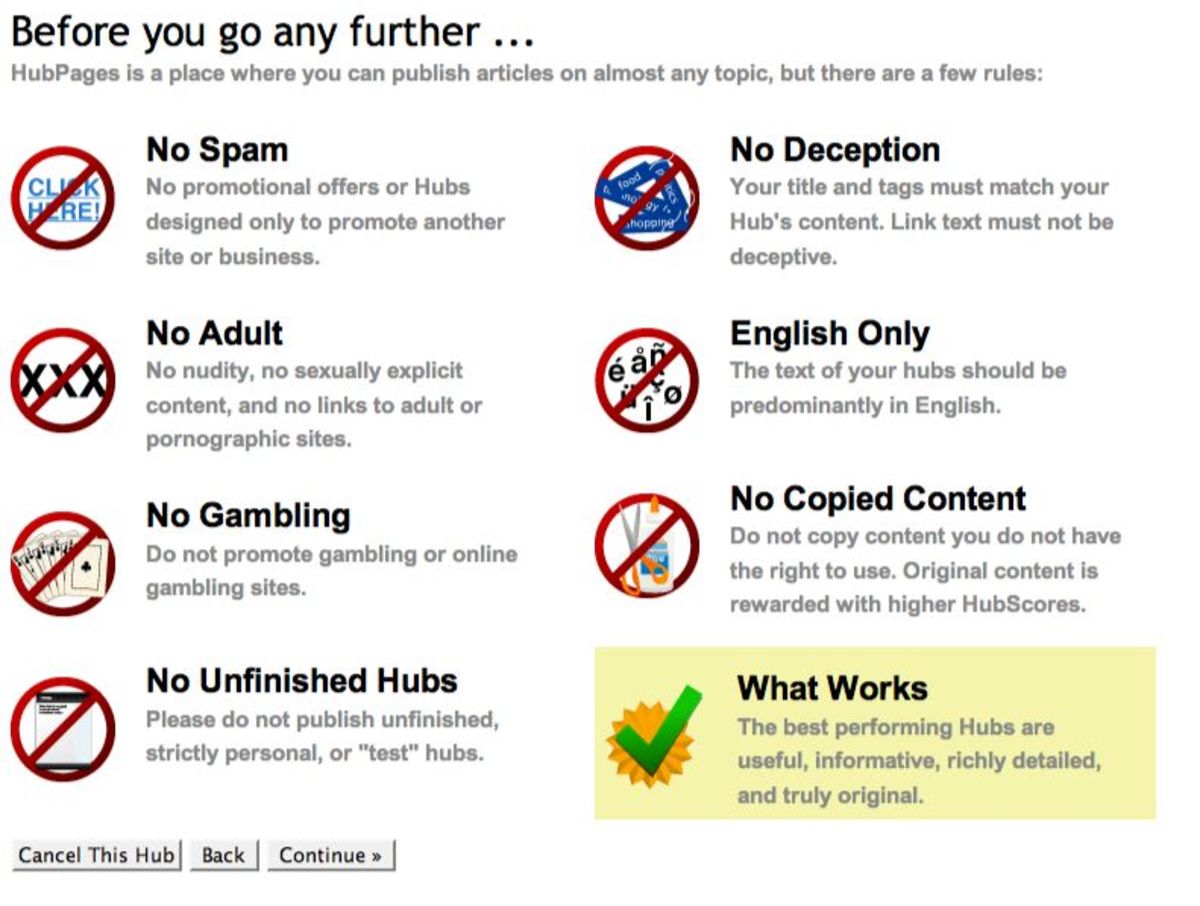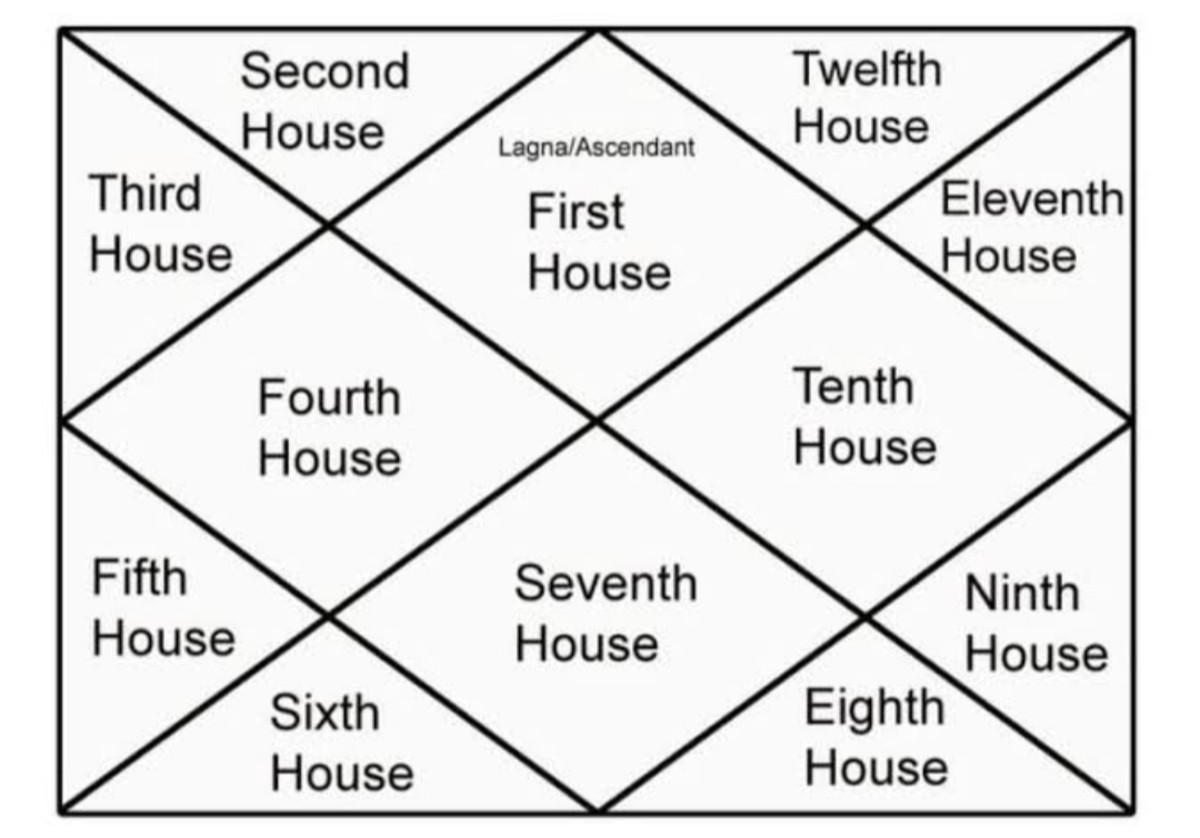Online Magazines vs Personal Blogs
How to Write for Online Magazines

Writing for Online Magazines
Many people figure writing is writing, and if it's online, then it must be a blog. Right?
Wrong. online magazines have specific guidelines about content quality, and any article written like a blog or a personal journal entry is not likely to be published. This also goes for sites (such as HubPages) that host various writers who produce informational pieces.
But for new writers, it can be difficult to understand the difference in style.
Here are some examples of the contrast in style between bonafide informational articles and blogs.
Naturally, this doesn't include all the ways the two differ, but the samples given here may help clarify things for those who are confused about the difference between a blog and a hub.
Contrast in Writing Styles Between a Blog and an Informational Article


Rather than telling the reader how you felt, help the reader personally experience those feelings
Suppose you write about your recent trip to the Vietnam Memorial in Washington D.C., which was a tremendously moving experience for you. Because emotions are involved, you may be vulnerable to the pitfall of simply expressing how you felt (which is often how a blog is written) rather than describing the experience in a moving way that will touch the emotions of the reader.
(Disclaimer: My dad was not in Vietnam and I have not taken my children to the Wall, but I have seen it myself. I am simply using this mock scenario as a way to show the contrast in writing styles. The descriptions and scenes mentioned here are similar to those I experienced while visiting the Wall at various times.)
Using this example, here are two ways you could write about the experience. One is better suited for a blog or a journal, and the other would be more appropriate for HubPages:
Spring Break Trip to the Vietnam Memorial (Blog Style):
Today we're going to talk about our recent trip to the Vietnam Memorial. I was so excited to go there, because my dad talked about his Army days there and I finally got to go see it on Spring Break because that's where we took the kids this year. They have heard their Grandpa talk about it many times, so I knew they would relate to it.
This monument is awesome! I had to cry when I saw the thousands and thousands of names on this wall because I know they are all somebody's son or husband or something. This monument is really different because it sort of goes underground and it doesn't have statues of people or anything.
This was one of the most moving experiences I have ever had and my kids liked it, too. I could see that they were touched by everything there and they said they were glad they got to see it. In particular, they remember seeing a sad man there and you could tell he knew someone on the wall. I absolutely recommend this as a good trip for Spring Break because it shows your kids what a bad war that was. My dad still talks about his time in Vietnam and sometimes it makes him break down in tears. Every time he thinks of those days he gets upset. I want to go see it again, it was that awesome.
Next time, we will talk about ways you can entertain your kids on three-day weekends!
Pointers: Aside from containing some errors and being very rambling and unfocused, the above example includes the extensive use of first-person sentences and is blog-like because the content lacks the depth needed to actually move the reader. By depth, I mean it does not describe the experience as though the reader were there in person, it simply describes what the writer did and felt.
Removing some (or all) of the "I" viewpoint will add depth and help draw readers into the experience by touching their own emotions through describing they might see at the Wall, and through the skillful use of descriptive language.
The above (mocked-up) writer also mentions the next thing he or she will write about, as though this is part of an ongoing diary or journal of their life. This is the type of thing a blog might mention, but it's not typical of article writing for informative sites such as HubPages. The photos, while interesting, are not about the topic in the piece.

Good articles focus on the reader, not on you
While a blog can be all about the writer and can be littered with first-person sentences, that style is generally less conducive to attracting readers of online magazines. Here are a few sentences written in blog or journal styles, with examples on how to rewrite them in ways more suited for online publishing:
Vacation Example:
Before: "If I want a good vacation, I visit a beach because I like the way it's exciting and also restful and beautiful."
After: "Do you want a perfect vacation? Consider visiting a beach; the beauty of the sand and water, combined with the music of waves lapping against the shore, will allow your tension to drain and give you the rest you probably need during a break from work. But the beach can also be exciting by offering opportunities to snorkel, scuba dive, or go sailing."
Pointers: Aside from avoiding the simplistic sentences in the first version, the second version explains why a beach can be restful and paints the picture of what you might see there. It also elaborates on activities you can do on such a trip, rather than leaving the reader wondering how a beach can be both restful and exciting.
Recipe Example:
Before: "I like this mac and cheese recipe because it is delicious and I think it is just right for feeding small children."
After: "Even small children love the tasty combination of pasta with cheese in this recipe because the seasonings are gentle, yet flavorful."
Pointers: Rather than telling the reader it is delicious, the second version describes why the recipe tastes good, and why it appeals to children. The second version also leaves out the "I" language the writer resorted to in the first version.
Revision - Online Magazine Style
Here is one way to rewrite the above example and make it more suitable for an online magazine. As with many online magazines, this example still uses some first-person language, but it is designed to draw the reader into the experience in an informative and descriptive way. Again, although the type of scene described at the Wall is similar to what I've seen in my visits there, the children mentioned here are used to demonstrate how one might write about such a trip.
Spring Break Trip to Vietnam Memorial (Online Magazine Style):
This year, we took the children on an educational trip for Spring Break rather than spending time at an amusement park or fighting the crowds on a beach. We choose Washington D.C., because it has such a wealth of historic meaning for our country. With two children learning about history in middle school, we figured the timing was right for this type of trip. We weren't disappointed.
Because my children often hear their grandfather talk about his time in Vietnam, the highlight of the trip (for them, as well as for me) was the Vietnam Memorial. Before we visited the monument, we researched it a bit and discussed what it meant and why its design is so unique.
According to the U.S. National Park Service's site on the Vietnam Veterans Memorial, there are currently 58,261 names of men and women engraved on the wall, all of them either killed or missing in action during the Vietnam War. To help our kids grasp the significance of this number and the humanity it represents, we pointed out that some towns near where we live have fewer than 40,000 people, which means the country lost more people during that war than the entire population of many towns and communities.
The wall's design creates a sobering experience for visitors and also invites meditation. Maya Ying Lin, who was a student at Yale University at the time, created the winning design for a competition in the early 1980s. Rather than depicting soldiers in battle, the Wall monument individually honors those who were lost through listing their thousands of names on the long walls of its black surface, which form a downward slope , forming a small area where visitors can rest and reflect on those whose names are listed. There is also a directory of the names engraved on the Wall with information on how to find a specific name along the huge sections.
As we drew closer to the wall, my children, usually very loud and active, suddenly grew quiet. Following their gazes, I realized they were intently watching an elderly man, about the age of their grandpa, as he knelt and placed an American Flag and a small bouquet of flowers at the base of one section of the wall. He rose from his knees with difficulty, then his fingers traced along the wall a bit before resting on one name. He stood there for a few minutes, and then traced the name one more time before patting it, as though to say goodbye, then bowed his head and walked away.
No words or history book could have better depicted to my children the deep scars the Vietnam War left on our country than the sight of that man saying goodbye to a loved one. We never learned whether it was his son, his daughter, his brother or sister, a fellow soldier or someone he grew up with, but we learned through seeing his reverence and sadness that those who were lost in that war were greatly loved, and that the Wall is a lasting monument to their memories.
Pointers: The revised example shows describes what was seen in a way that puts the reader into the scene and allows them to experience their own emotions rather than reading about the emotions of the writer. This example also includes some facts and data to add to the story, which is an important element content for online magazines will need. The rewritten example includes a degree of first-person language, but it also describes what the reader might have seen had she or he been there.
In this example, although the writer talks about a specific trip, he or she does not describe it as though it's a daily blog entry. In addition, the photo used here is more relevant to the content than in the earlier version.
Final thoughts
The above examples are only a few ways that writing styles in blogs generally differ from the preferred styles of most online magazines.
If your writing style resembles the way you might chat on the phone, or it doesn't include specific facts and details, you may be writing like a blogger. If you frequently talk about how much you liked something or how exciting it was without showing the reader through your words what made it enjoyable or exciting, you may be guilty of blogging rather than writing like a magazine journalist.
NOTE: Some very good writers for various online magazines and sites use their personal experiences to illustrate ways to deal with difficult situations in life, or how to overcome hardships. This type of first-person writing is often used as a vehicle for that type of article and is less likely to fall into the blog category than the examples given above.
Below are some additional articles about writing skills and how to advance your career.
More tips on how to earn money as a professional writer
- How to avoid common mistakes in writing
Whether you're writing a term paper or a news story, these tips will help. A list of solid tips for improving your writing skills. Brush up on how to write anything: School papers, resumes, reports, blogs and more. - How to succeed as a professional writer: These unwritten rules will help you earn money by freelanc
How to make it big in freelance writing. These unwritten rules will help you succeed and earn money as a writer. - What editors want from writers: How to stay on their good side
Important tips from a professional editor on what magazines and newspapers want from writers. Here's how to please your editors. - 10 great ways writers earn money: You can make money writing columns and as a business writer
You can make big bucks as a writer. Here's how to take your career to the next level! - Get more money for your writing: How to convert one piece into more assignments
You can make more money from one story than you realize. These tips can help increase your writing income.








